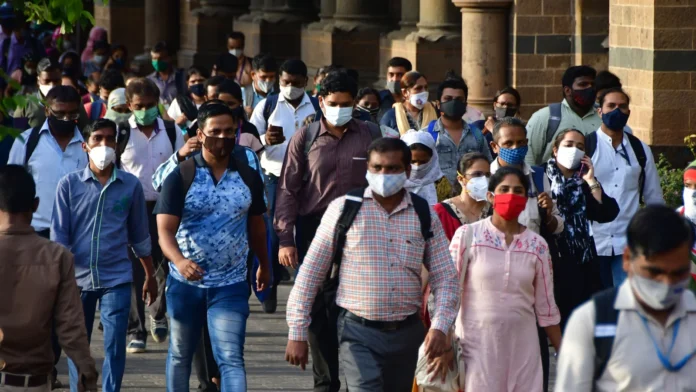In a significant development in the fight against Covid-19, Maharashtra has identified 91 cases of a new variant called ‘FLiRT’. Named for its characteristics of Fluctuating Lethality and Rapid Transmission, this variant has raised concerns among health experts and policymakers.
The FLiRT variant was detected through genomic sequencing efforts by health authorities in Maharashtra. While sharing similarities with other concerning variants like Delta and Omicron, FLiRT’s precise impact on disease severity and transmission rates is still under investigation. Health officials have initiated contact tracing efforts and enhanced surveillance measures to contain its spread.
This discovery has prompted a swift response from health authorities, emphasizing the importance of continued adherence to preventive measures such as mask-wearing, social distancing, and vaccination. The emergence of FLiRT highlights the need for global cooperation in monitoring and responding to emerging variants, as well as the importance of vaccination in reducing the risk of severe illness.
Efforts to contain the spread of the FLiRT variant include scaling up testing and genomic sequencing capacity, as well as accelerating vaccination coverage. While the full extent of FLiRT’s impact remains uncertain, early detection and rapid response are crucial in mitigating its spread and preventing further transmission.
As the Covid-19 pandemic continues to evolve, it is imperative for health authorities and the public to remain vigilant and adaptable in the face of emerging challenges. By working together and following evidence-based public health measures, we can effectively combat the threat posed by variants like FLiRT and move closer to overcoming the pandemic.
The emergence of the FLiRT variant in Maharashtra, with 91 cases already identified, has set off alarm bells among health authorities and the public alike. This new variant, named for its Fluctuating Lethality and Rapid Transmission characteristics, presents a fresh challenge in the ongoing battle against the Covid-19 pandemic. While similarities to previously concerning variants like Delta and Omicron have been noted, the specific implications of FLiRT remain under close scrutiny. Health officials are working swiftly to contain its spread through robust contact tracing efforts and enhanced surveillance measures.
In response to the detection of FLiRT, health authorities in Maharashtra have escalated their efforts to curb the transmission of the variant. These efforts include ramping up testing and genomic sequencing capabilities to better track the spread of FLiRT and identify any further mutations. Additionally, public health campaigns stressing the importance of preventive measures such as mask-wearing, social distancing, and vaccination have been intensified to limit the virus’s impact.
The identification of FLiRT underscores the ongoing need for global cooperation in the fight against Covid-19. As variants continue to emerge, collaboration between nations becomes increasingly crucial in monitoring and responding to these developments effectively. Furthermore, vaccination campaigns remain a cornerstone of the pandemic response strategy, with health authorities emphasizing the importance of vaccination in reducing the risk of severe illness and preventing the spread of variants like FLiRT.
While uncertainties surrounding FLiRT persist, proactive measures and vigilance are paramount in mitigating its impact. By remaining adaptable and responsive to emerging challenges, health authorities and the public can work together to navigate through this latest development in the Covid-19 pandemic and strive towards eventual containment and control of the virus.
As Maharashtra intensifies its efforts to contain the FLiRT variant, the discovery underscores the ever-evolving nature of the Covid-19 virus and the need for continuous vigilance. With variants like FLiRT presenting new challenges, it is imperative for health authorities to remain agile in their response strategies and for the public to adhere to recommended guidelines. By maintaining a proactive approach to surveillance, testing, and vaccination, Maharashtra and other regions affected by emerging variants can mitigate the spread of the virus and safeguard public health. This latest development serves as a stark reminder of the importance of staying united and vigilant in the ongoing battle against Covid-19.

